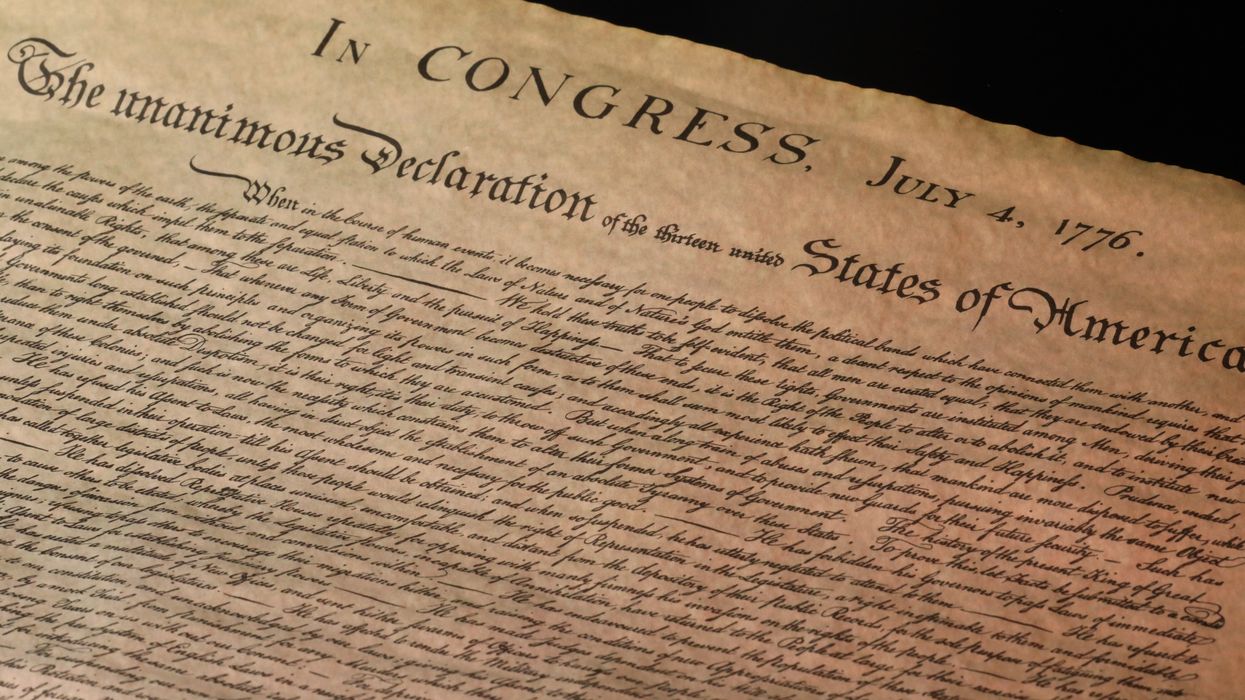Bobb is president and CEO of the Bill of Rights Institute, a nonpartisan, nonprofit organization that advances civic and history education.
It is hard to imagine Americans afraid to celebrate America. But as our nation’s 250th birthday approaches in 2026, there is already some nervous hand-wringing about how citizens should respond.
Should the 250th anniversary of the signing of the Declaration of Independence be a time of celebration, a period of atonement for the uglier aspects of our history or a little bit of both?
It is a problem The New York Times saw coming in July 2023, when it looked at the difficulty of crafting a unifying national message “when fighting about American history seems to be the real national pastime.” An article in Time similarly warned us to “ get ready for controversy.”
But what if America’s 250th birthday became a unifying time for our nation, instead of the latest battle in the ongoing history wars?
Marking this historic milestone does not need to be a false, binary choice between untamed jingoism and self-loathing. We can acknowledge both the positive and negative aspects of our national history, while celebrating America’s ongoing journey toward the realization of its ideals.
When the Declaration of Independence embedded principles like equality and liberty into the foundation of our nation, Americans did not become equal and liberated overnight.
Rather, the Declaration of Independence launched a journey and established a standard that made progress toward the goals of equality and liberty possible.
Ugly aspects of our history like slavery, Jim Crow, and denying women the right to vote make clear America has not always lived up to its principles.
But in each of those cases, the standards established at our nation’s founding became a rallying cry for progress.
Leaders such as Frederick Douglass and Martin Luther King Jr. called for America to live up to its promises as part of the abolition and civil rights movements. Douglass believed equality and liberty were “saving principles.”
In fact, the women’s suffrage movement repeatedly invoked the founding principles of equality and liberty to argue for equal access to the ballot box.
At the heart of our American experiment is the recognition that we have a standard that we need to live up to. This recognition has meant that we are on a journey to more perfectly realize the promise of equality and liberty expressed in the Declaration of Independence.
While we have too often failed to live up to our standards, we can celebrate the progress we have made.
We have a free press providing our citizens with independent sources of information. Our press can and does hold local, state and national leaders to account, with protection from government reprisal.
The United States was one of just 35 countries to receive the highest “open” ranking in the 2023 Global Expression Report, which measures nations’ commitments to free expression. Conversely, 86 nations were ranked as restricted, highly restricted or in crisis. People of every faith gather freely in houses of worship across our country without fear of government persecution. Or, they exercise their right to practice no religion at all.
America’s journey has not been perfect, but our end goal — the full realization of equality and liberty for all people — is perfect. Keeping that destination in our sights requires constant reflection and, at times, course corrections.
We have done this work throughout our history, and we must continue to do so.
But we can take pride in the journey we collectively embarked upon as Americans.
And as we prepare for America’s 250th birthday, we can celebrate the founding principles that established a framework for both our journey and our progress.




















Trump & Hegseth gave Mark Kelly a huge 2028 gift